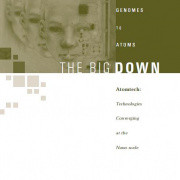Nine Mexican States found to be GM contaminated - Contamination by genetically modified maize in Mexico much worse than feared
Submitted by ETC Staff on
Mexico City, Mexico
* Contamination has been found in cornfields in the states of Chihuahua, Morelos, Durango, Mexico State, Puebla, Oaxaca, San Luis Potosí, Tlaxcala and Veracruz
* Analyses show contamination with the genetically modified (GM) variety Starlink, prohibited for human consumption in the United States
* Some plants found to show presence of two, three and four different GM types, all patented by transnational biotechnology corporations

